
Today’s energy sector presents big opportunities – as a foundational sector of our economy and society, it has a major impact on our ability to address the climate crisis. But it also faces big challenges: a record rise in global gas prices over the last six months has pushed the UK’s energy regulator Ofgem to increase the energy price cap by over 50%, and regional and global conflicts are poised to cause further challenges.
The Energy Digitalisation Taskforce (EDiT) recently published a report, Delivering a Digitalised Energy System, which contained six recommendations ‘based around a single strategic aim of developing a modern, decarbonised digital energy system’.
These recommendations give us a view of how key decision makers in the UK are thinking about the potential of digitalisation to achieve the national goals around net zero, and provide a pathway for organisations to drive those activities in a coordinated way.
Below, Josh D’Addario and Ed Evans respond to these recommendations and explain what a data-driven approach would bring to the sector.
Recommendation 1: Unlock value of customer actions and assets
Businesses can improve market reach, boost operational efficiency and gain invaluable market insights by sharing data in appropriate ways, and there is significant potential for this to also address widespread challenges in the energy sector. Data can help us monitor the energy system, improve efficiencies through digital twins, create new products and services, and drive decarbonisation implementation in heat pumps, wind farms and solar energy. Our current work supporting the UK Power Networks (UKPN)’s open data strategy and the Data for Good initiative at the Data Communications Company (DCC) is part of our overall commitment to helping data drive the push for net zero.
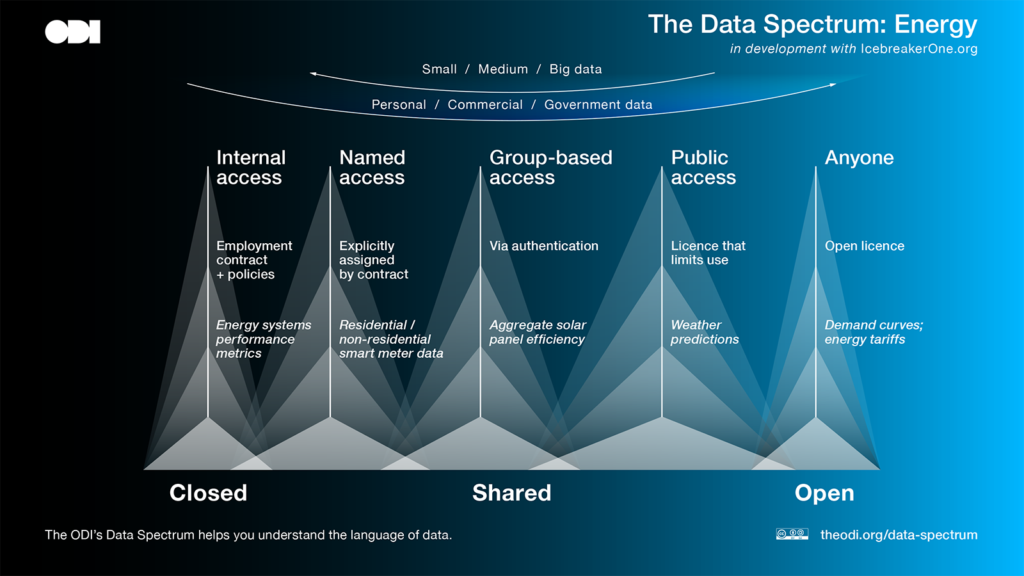
The Data Spectrum for energy shows how we can increase access to data, by making it shared or open, in order to unlock its value
Recommendation 2: Deliver interoperability
For the value of data to be more fully realised, it needs to be what is known in science circles as FAIR: Findable, Accessible, Interoperable and Reusable. Much of that can be better achieved through the use of open standards for data in the energy sector to help change markets, create open ecosystems and implement policy objectives. It is the first step towards consumers having more control over energy data about them, and supports the creation of innovative new energy services, including those which help people move to a cheaper energy supplier, and find suppliers that use renewable energy sources.
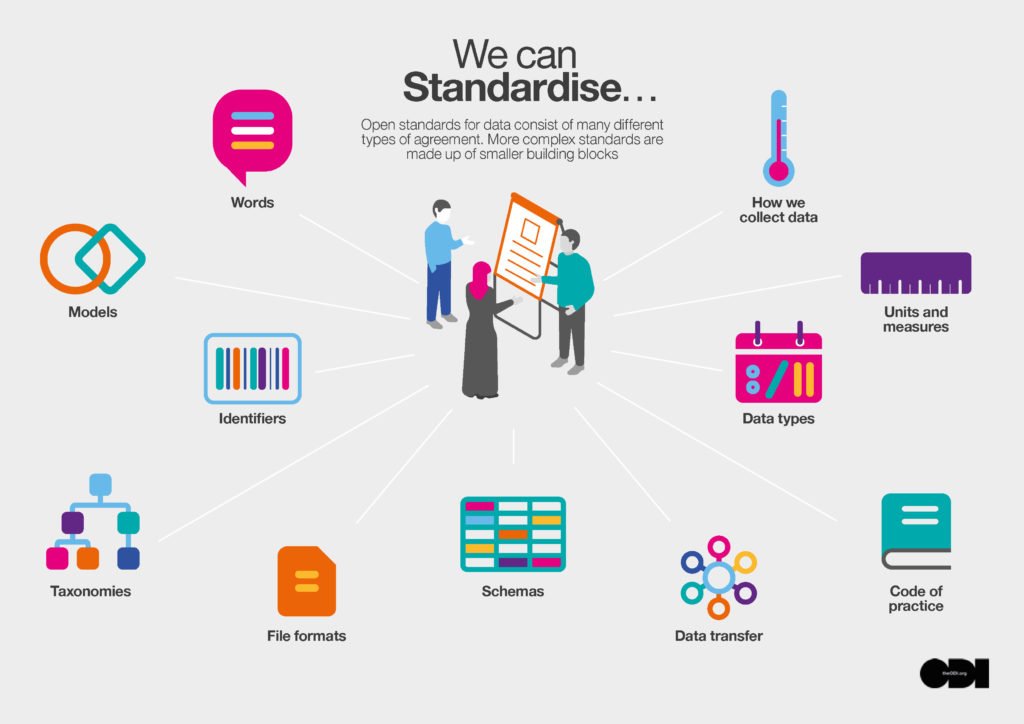
Delivering interoperability means standardising taxonomies and file formats, but also non-technical aspects such as the words we use when collaborating
EDiT also calls for ‘delivering interoperability through the development and deployment of four Public Interest Digital Assets’ with particular focus on a ‘Digital Spine’. An example of this is the smart meter system currently managed by DCC which aims to improve access to smart meter system data in a way that maximises equitable value while minimising risk.
Recommendation 3: Implement new digital governance approach and entities
In the energy data landscape, building appropriate data governance processes will foster greater trust and enable data sharing while protecting individual privacy. Our work embedding the Data Ethics Canvas into UKPN’s ‘open data triage’ process is an example of this. But more importantly through data governance we can ensure an equitable distribution of value to more marginalised groups such as low-income countries, indigenous groups and people and communities in vulnerable situations.
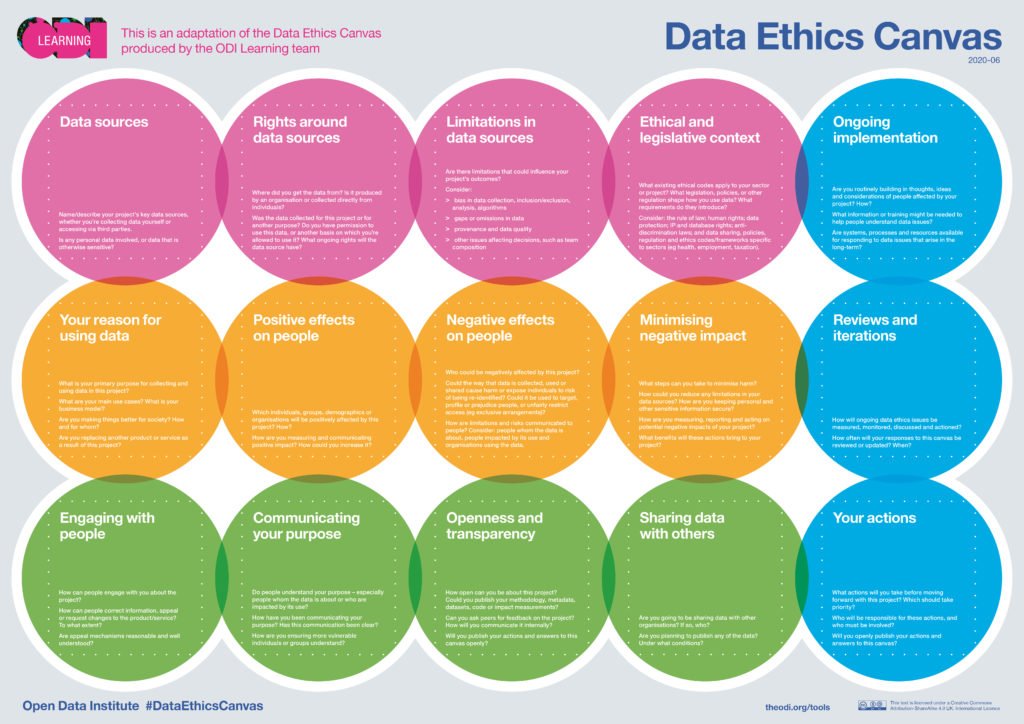
The Data Ethics Canvas can help improve data governance and decision-making to deliver equitable value
Recommendation 4: Adopt digital security measures Recommendation 5: Enable carbon monitoring and accounting
The principles of security, transparency and accountability regarding the access, use and sharing of data all come down to one key concept – trust. We have long discussed how trust is a core component of a functioning data ecosystem. Data assurance increases confidence that data will meet a specific need, and that organisations collecting, accessing, using and sharing data are doing so in trustworthy ways.
Organisations can increase access to data while retaining trust, through openness, collaboration, certification or creating new ‘data institutions’ with specific remits and accountabilities.
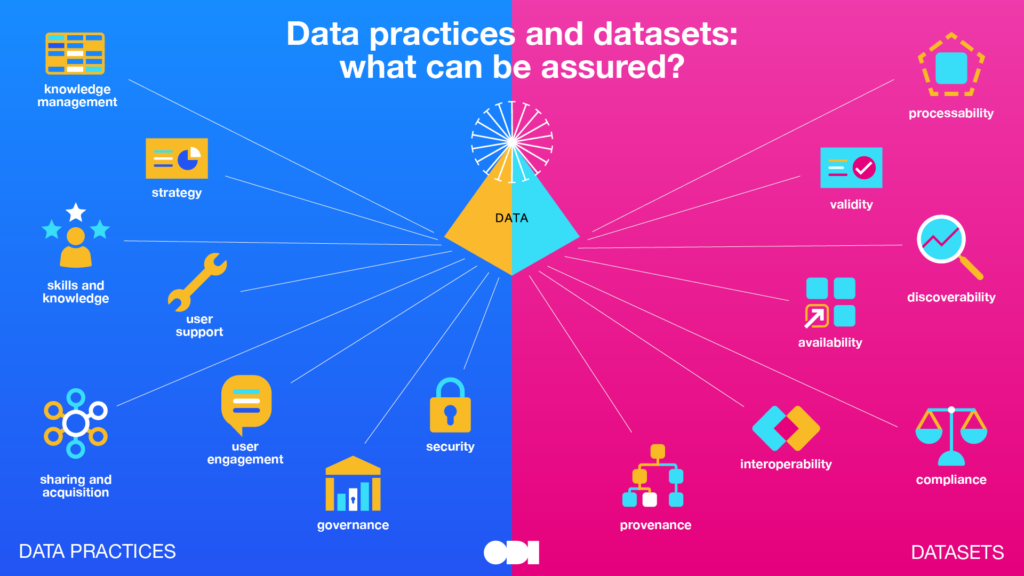
Assurance of data and data practices is important for organisations to build trust, manage risks and maximise opportunities
This is important in all aspects of the economy, whether it is investing, looking at Environmental, Social, and Governance (ESG) factors such as pollution, or understanding the carbon footprint of an organisation’s activities.
Carbon accounting suffers from data quality issues, measurement and reporting inconsistencies, making it difficult to compare, combine, and share reliable data. One solution could be a global data collaboration to help adopt open data standards for carbon monitoring and accounting, as well as the implementation of certified data assurance services for these measurements and other ESG metrics. Such collaboration could help UK and international organisations reduce emissions both internally and along their supply chains.
Recommendation 6: Embed a digitalisation culture
Thriving data ecosystems require people to engage in collaborative data projects, and community-building efforts that join the dots between different stakeholders. This requires more than just a digitalisation or data culture, this requires an open culture.
Open culture means knowledge and skills to embed an understanding of the benefits of collaboration, transparency and engagement, data management processes that underpin data access and publication with strategic oversight and engagement across the energy sector from suppliers to end users and the investment to make this all possible.
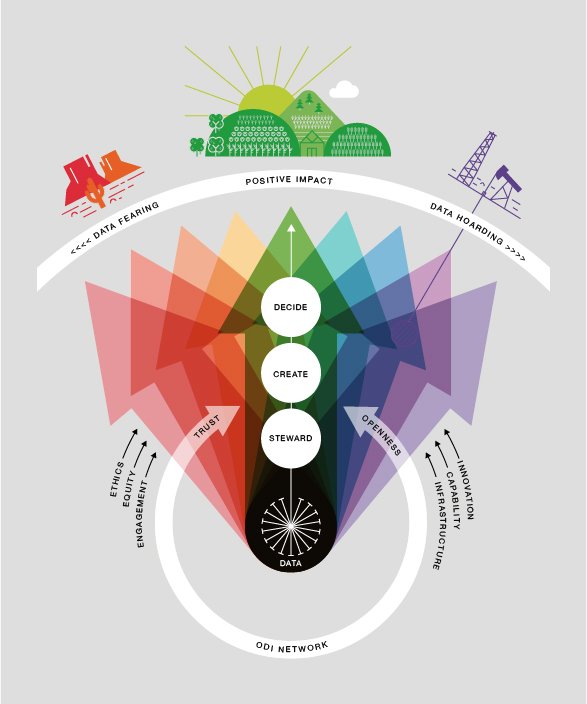
The ODI's theory of change – underpinned by an open culture, we can build a more open and trustworthy data ecosystem to achieve the national goals around net zero, and make data work for everyone
Better data ecosystems in the energy sector would make it easier for partners to work together to address the climate crisis and support the aims of COP26 to secure global net zero. Establishing responsible data governance practices can enable a just transition that benefits lower income and other vulnerable communities.
Get in touch
The ODI’s data advisory work can help industry groups innovate, unearth and build upon potential use cases.
If you are interested in discussing these issues, or working with us, please contact [email protected] or [email protected]